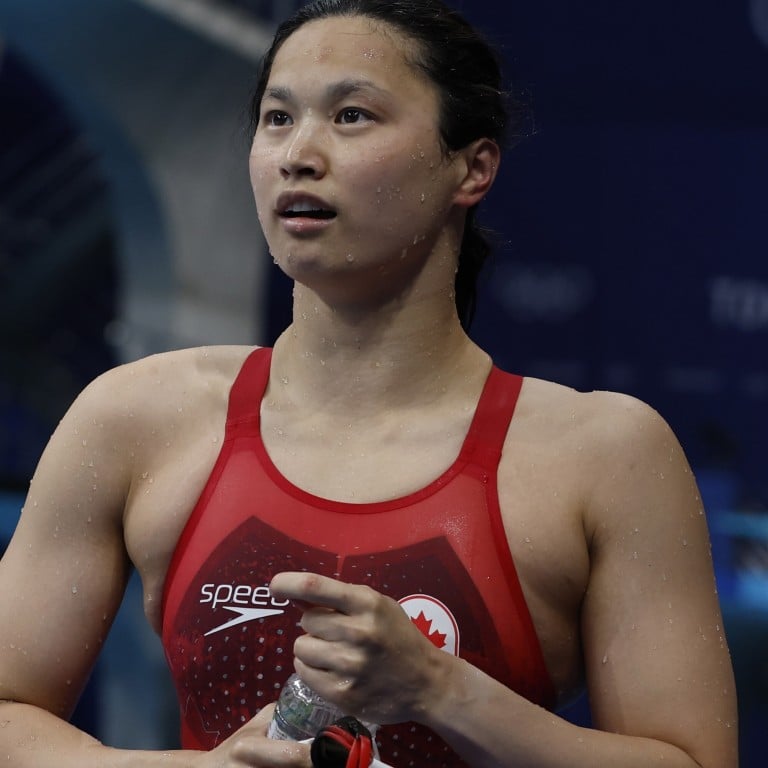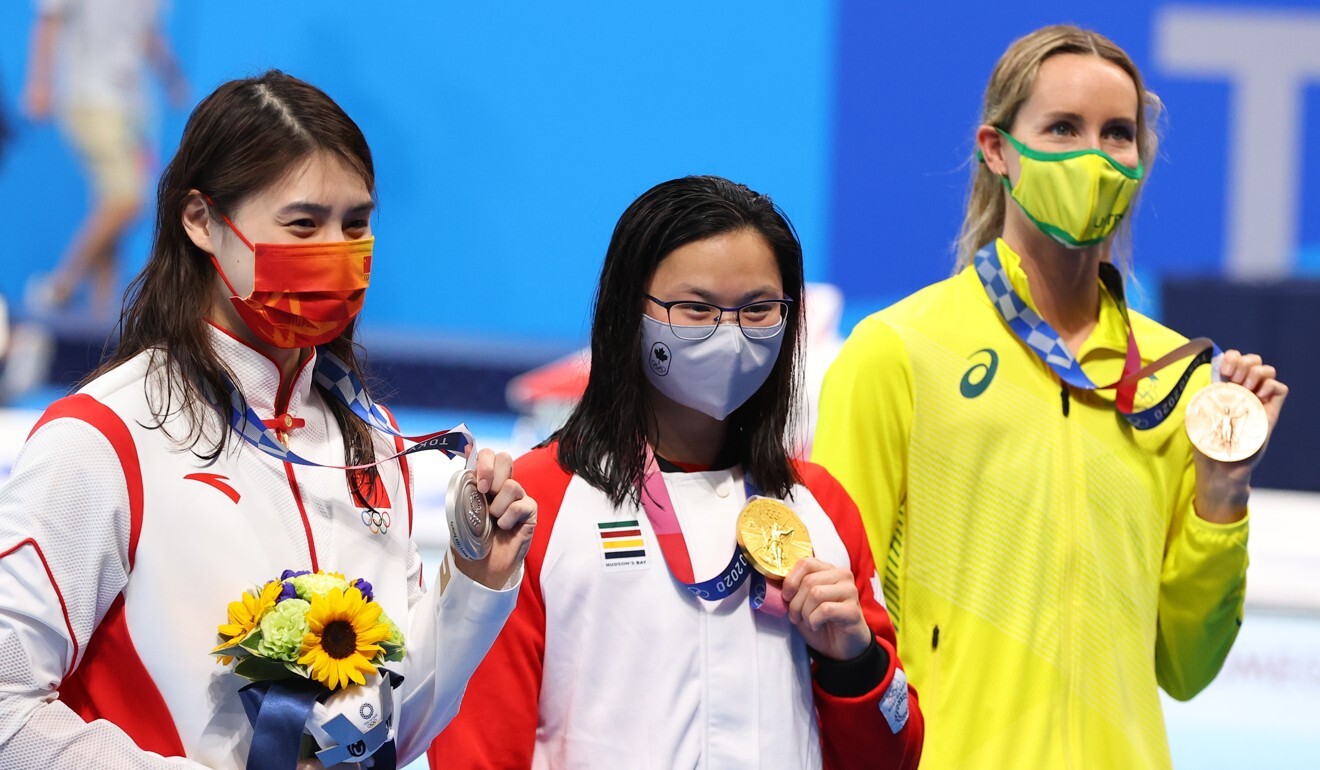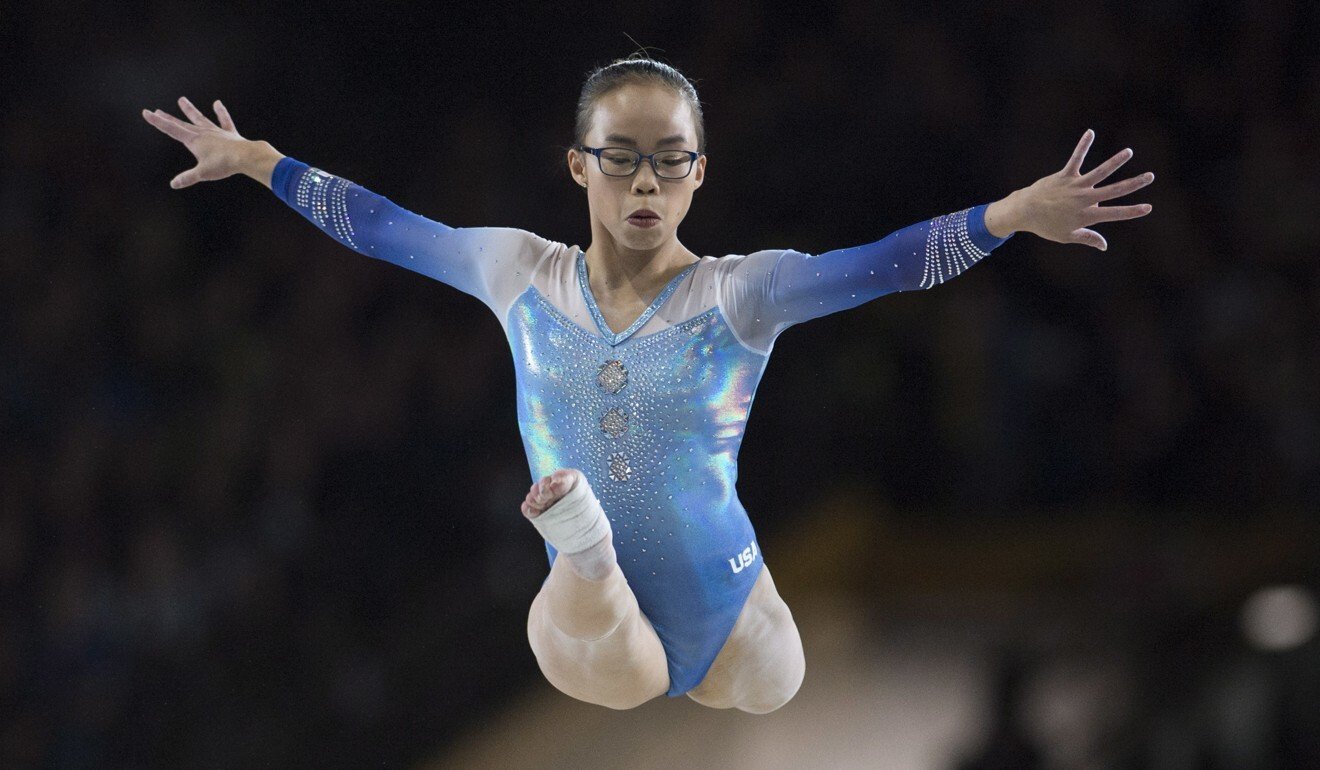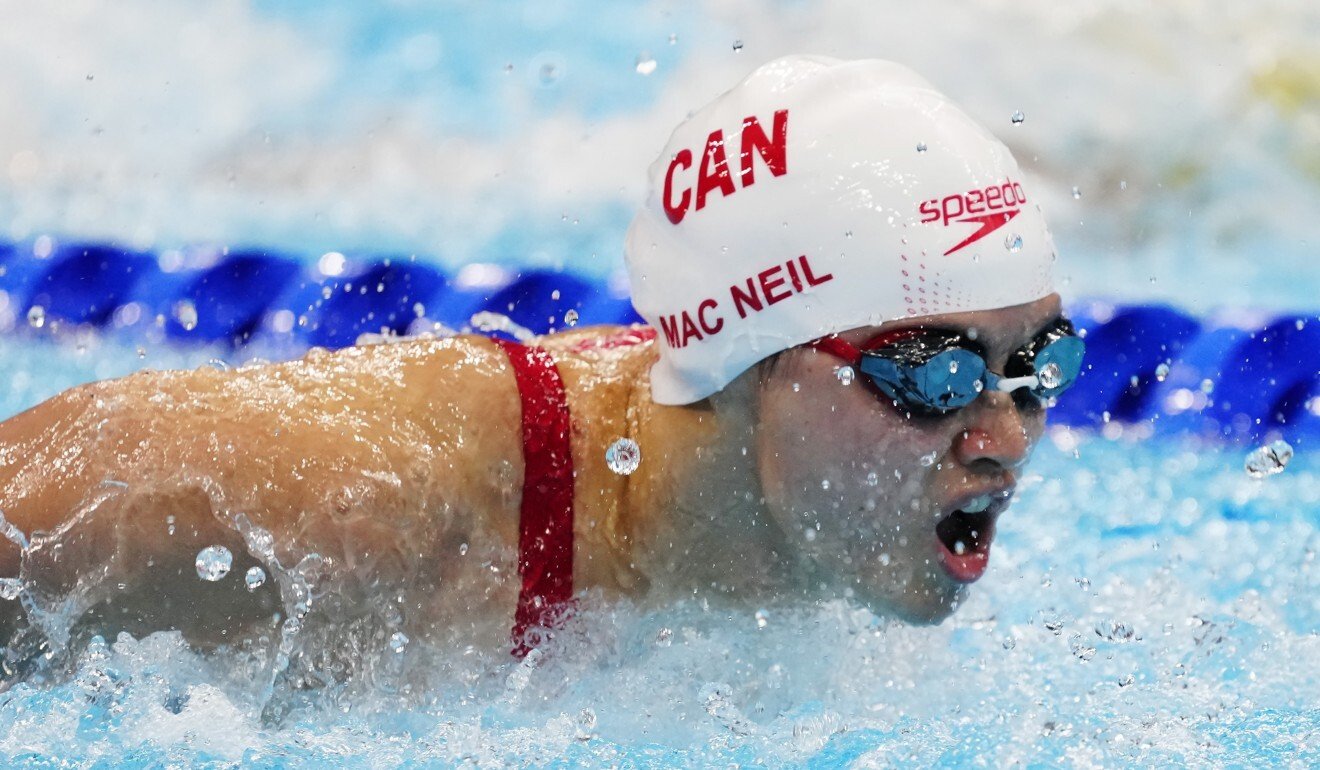
Tokyo Olympics: Adopted from China, Canada’s Maggie MacNeil wins gold and Chinese social media laments its one-child policy
- The 21-year-old’s victory in the 100m butterfly forces introspection given she was abandoned by her biological parents as a baby
- Netizens lament the circumstances that forced the swimming star out of her birth nation, but are full of praise for those who raised and trained her
MacNeil, as mainland media reported, was abandoned by her biological parents after being born in Jiujiang, Jiangxi province in February, 2000. One year later, she was adopted as a toddler along with her younger sister from a local orphanage by Susan McNair and Edward MacNeil, of London, Ontario, Canada, and they brought both children back to their hometown.
Her potential became crystal clear at the World Championships in Gwangju, South Korea in 2019, where she dethroned world record-holder Sarah Sjostrom in the 100m butterfly to win gold in 55.83 seconds.
“Imagine had she not been brought up from the orphanage, or had she not been deserted by her biological parents, what would she be now?” wrote one comment on the country’s microblogging site Weibo. “The adoption changed her life orbit completely as she was given such quality care and training.”

“She might have dropped out of school to support a younger brother had she stayed in China,” wrote another.
Under the first iteration of the policy, local authorities seeking to meet population targets often took harsh measures such as forced abortions and sterilisation. Families’ preference for boys, especially in rural, farming areas, further resulted in massive sex-based abortions, adoptions or abandonment, leaving a large gender imbalance in the country.
Families which violated the one-child, and later two-child, policy faced hefty fines and difficulty finding a job. As recently as 2020, local authorities in Sichuan fined a family 718,080 yuan (US$110,000) for having seven children, according to Global Times.

05:59
Hong Kong’s Cheung Ka-long clinches Olympic gold in historic win at Tokyo Games
All this led many families to abandon their infant daughters at the gate of orphanages, schools or even on the street, in hopes that either the homes or another family would care for them.
By the first quarter of 2021, there were 190,000 orphans in China, according to the Ministry of Civil Affairs. Among them, only 59,000 were taken care of by child welfare institutions nationwide.
The number of orphans stood at 570,000 in 2012, triple that of 2021.
China launched its international adoption programme in 1991. An estimated 110,000 children from China have been adopted internationally since then, most from the United States, wrote Kerry O’Halloran, an adjunct professor from the Australian Centre for Philanthropy and Nonprofit Studies at Queensland University of Technology, in his book The Politics of Adoption.

MacNeil’s story also reminded many of US gymnast Morgan Hurd’s own journey. Born in China’s Guangxi province in 2001, Hurd was adopted by her mother Sherri Hurd, of Middletown, Delaware, at 11 months old, and started gymnastics at the age of three.
According to the US Department of State, among the 82,456 children that the Americans adopted from China between 1999 and 2020, 82.14 per cent were females.
“How many girls failed to realise their potential because of the preference for a boy?” one questioned. “How many female talents have we missed out on?”
Other Chinese netizens insisted that, although the Olympic winner was Chinese by birth, MacNeil’s gold medal added no glory to China.
“Her victory only proves how ethnicity does not matter in sports, as Asians clinched gold and silver in such an epic match,” said one commentator.
Another said: “She helms the citizenship of Canada, and all the credit should go to those who raised and trained her well in Canada.”
“I feel ashamed to see media mention that MacNeil was born in China,” one user said, “What is more worthy of being mentioned may be that we gave her up 20 years ago.”

For her part, MacNeil has been very clear about how she identifies herself.
“I was born in China and I was adopted when I was really young, and that’s as far as my Chinese heritage goes,” she said in the post-race press conference.
“I’m Canadian and I’ve always been Canadian, so that’s just a very small part of my journey to where I am today. It’s kind of irrelevant when it comes to swimming.”

